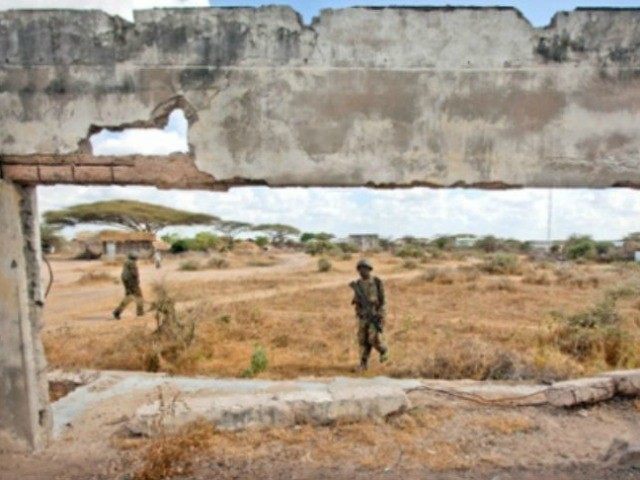The Kenyan government has broken ground on a new wall that will span a large swatch of the border between Kenya and Somalia. While the project had been announced in March, Kenyan authorities appear to have expedited the groundbreaking in response to the terrorist attack at Garissa University.
Kenya’s The Standard reports that the construction of the wall has begun in Kiunga, Lamu County, and covers an area that includes “uninhabited islands suspected to be a hide-out for Al-Shabaab militants and also believed to provide a safe passage for smugglers.” The groundbreaking, the newspaper adds, appeared “amid alleged protests by the Somali government.”
The Star adds that the span of the wall is planned “from Border Point One in Mandera to Border Point 29 in Lamu.” Kenya is striving to persuade the public to support the project, highlighting that the wall is intended to facilitate the ability of law enforcement officials to track who enters and exist the nation through Somalia. “We will ensure our borders are secure by preventing illegal immigrants and proliferation of small arms,” said Director of Immigration Services Maj. Gen Gordon Kihalangwa (retired).
Kenya had announced the construction of the project in March, though The Standard noted that there was a heightened sense of “urgency” surrounding the project following the attack on Garissa University on April 2, which left 147 Christian students dead. “Construction works will begin soon. We expect to have finished the project before the end of the year,” Lamu County Governor Issa Timamy said in March. He added, “This is where immigrants have been arrested trying to cross into the country or having already entered through the border in Lamu. This is a good idea and we support it because we believe it will go a long way to secure this region and indeed, the country as a whole.”
The efforts to limit the open travel of al-Shabaab terrorists from Somalia to Kenya follow attempts to crack down on the group’s recruitment within Kenya. The Garissa attack, staged by four members of the terrorist group, was staged not exclusively by Somali nationals. One of the four gunmen has been subsequently identified as a Kenyan attorney and the son of a prominent Kenyan politician.
The Kenyan government has not provided a specific response for how to control the travel and planning of radical Islamist terrorists who are Kenyan nationals. One project senior religious officials announced following the Garissa attack is more thorough vetting of religious scholars speaking publicly.

COMMENTS
Please let us know if you're having issues with commenting.